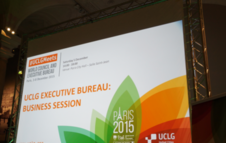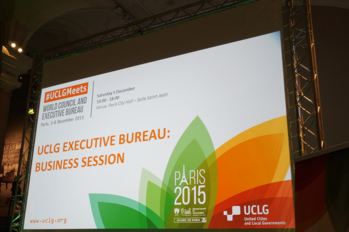
On 5 December, UCLG held two important meetings for local and regional governments in the framework of the COP21 in Paris, “From COP21 to Habitat III”, a seminar on the social dimensions of climate action in Saint- Denis, and the UCLG Executive Bureau at Paris City Hall. Debates at both events highlighted the fact that climate change is a social, as well as an environmental challenge, and the need for local government to partner with civil society to achieve the 2030, climate change, and New Urban Agendas.
“From COP21 to Habitat III: local governments and citizens at the heart of the challenges”
Patrick Braouezec, President of Plaine Commune and co-president of UCLG Committee on Social Inclusion, Participatory Democracy and Human Rights (CISDP), welcomed participants to Sant-Denis for the debate “From COP21 to Habitat III”, organized by CISDP, the UCLG World Secretariat and the Global Platform for the Right to the City.
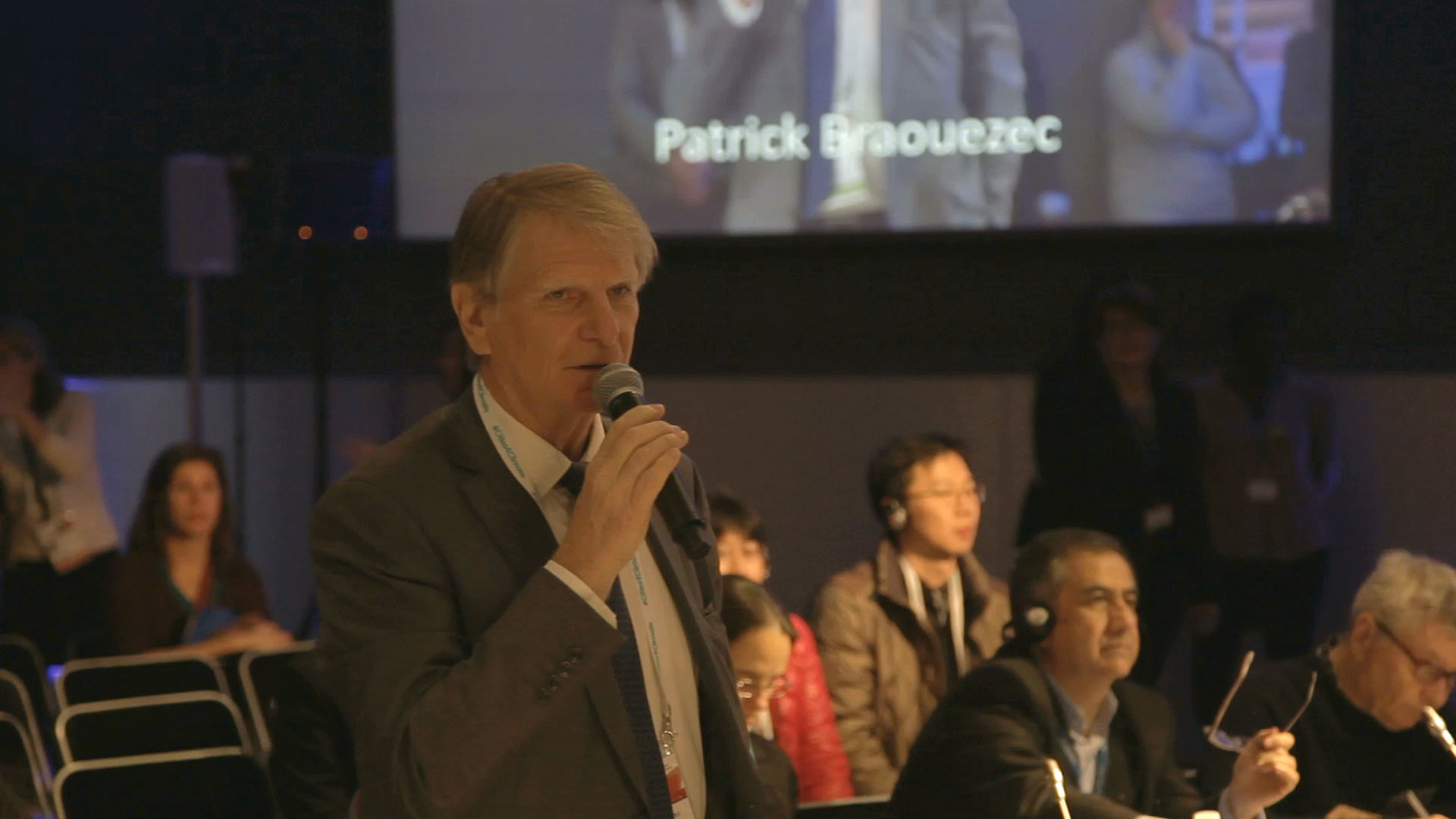 The session provided mayors and local leaders with the opportunity to debate the New Urban Agenda and the challenge of climate change with representatives of civil society organizations such as the Global Platform for the Right to the City and Coalition Climat21, among others, and to identify common priorities and messages for Habitat III. Consensus emerged on the importance of transparency regarding the local impact of climate change and local government action to mitigate and adapt to it. Participants from local government and civil society also called for genuine citizen participation in urban planning and development, particularly of women and indigenous peoples.
The session provided mayors and local leaders with the opportunity to debate the New Urban Agenda and the challenge of climate change with representatives of civil society organizations such as the Global Platform for the Right to the City and Coalition Climat21, among others, and to identify common priorities and messages for Habitat III. Consensus emerged on the importance of transparency regarding the local impact of climate change and local government action to mitigate and adapt to it. Participants from local government and civil society also called for genuine citizen participation in urban planning and development, particularly of women and indigenous peoples.
Many speakers called for a human rights approach to sustainable development, with Mayor of Utrecht, Jan van Zanen, saying that “cities need to use human rights and participatory democracy as a framework for all policies”; and Mayor of Madrid, Manuela Carmena, calling for local leaders to “humanize cities, listen to citizens and respect human rights”.
Participants also explored how to create a sustainable economy, discussing the urgent need to move to sustainable models of production and consumption. Dimitrios Rossopoulos, Co-Founder of the Montréal Urban Ecology Center, argued that "we need to think about wealth without growth", while Mayor of Barcelona, Ada Colau called for strong alliances between local governments and social movements to put pressure on economic interests to tackle climate change.
A strong emphasis was placed on the importance of both gender and cultural approaches to tackling climate change. Mayor of Tevragh-Zeina and Former President of the African Women Network REFELA Fatimetou Mint Abdel Malick argued that "women aren't victims of climate change, we're the greatest weapon against it," while Councillor of Lille-Métropole and President of the UCLG Committee on Culture, Catherine Cullin, pointed out that “humans are cultural, thus, a sustainable climate change strategy must take a cultural perspective”.
HABITAT III: a unique opportunity for local governments
Mayor of Nanterre, Patrick Jarry, argued that local governments are best placed to integrate the ecological, social, economic and cultural dimensions of sustainable development. It was agreed that the Right to the City and local democracy must be at the heart of Habitat III.
In her speech defending the Right to the City, President of the Habitat International Coalition, Lorena Zarate, spoke out against the glorification of urban living, calling on local leaders to see urbanization as neither inevitable nor as the only possible model of development that enables human flourishing.
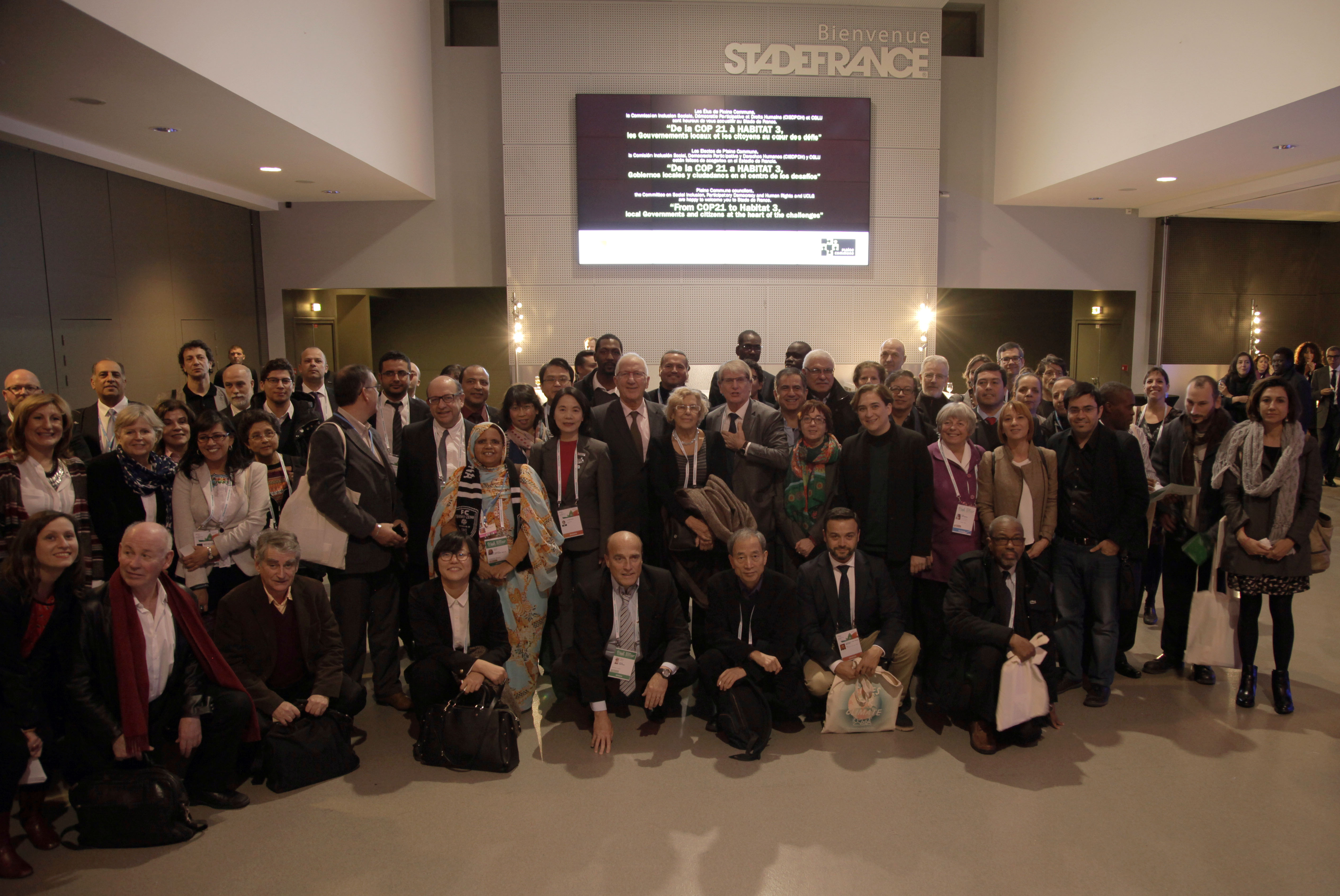 In discussions on the implementation of the New Urban Agenda, it was agreed that insufficient political will and financing were largely to blame for the failures to achieve the Habitat II commitments, and that these must be addressed as integral to the Habitat III process.
In discussions on the implementation of the New Urban Agenda, it was agreed that insufficient political will and financing were largely to blame for the failures to achieve the Habitat II commitments, and that these must be addressed as integral to the Habitat III process.
The debate concluded with a consensus that the formal role of local authorities in the Habitat III negotiation process must be enhanced, and that UCLG must continue to facilitate city to city learning and cooperation between local governments.
UCLG Executive Bureau: putting people at the heart of the international agenda
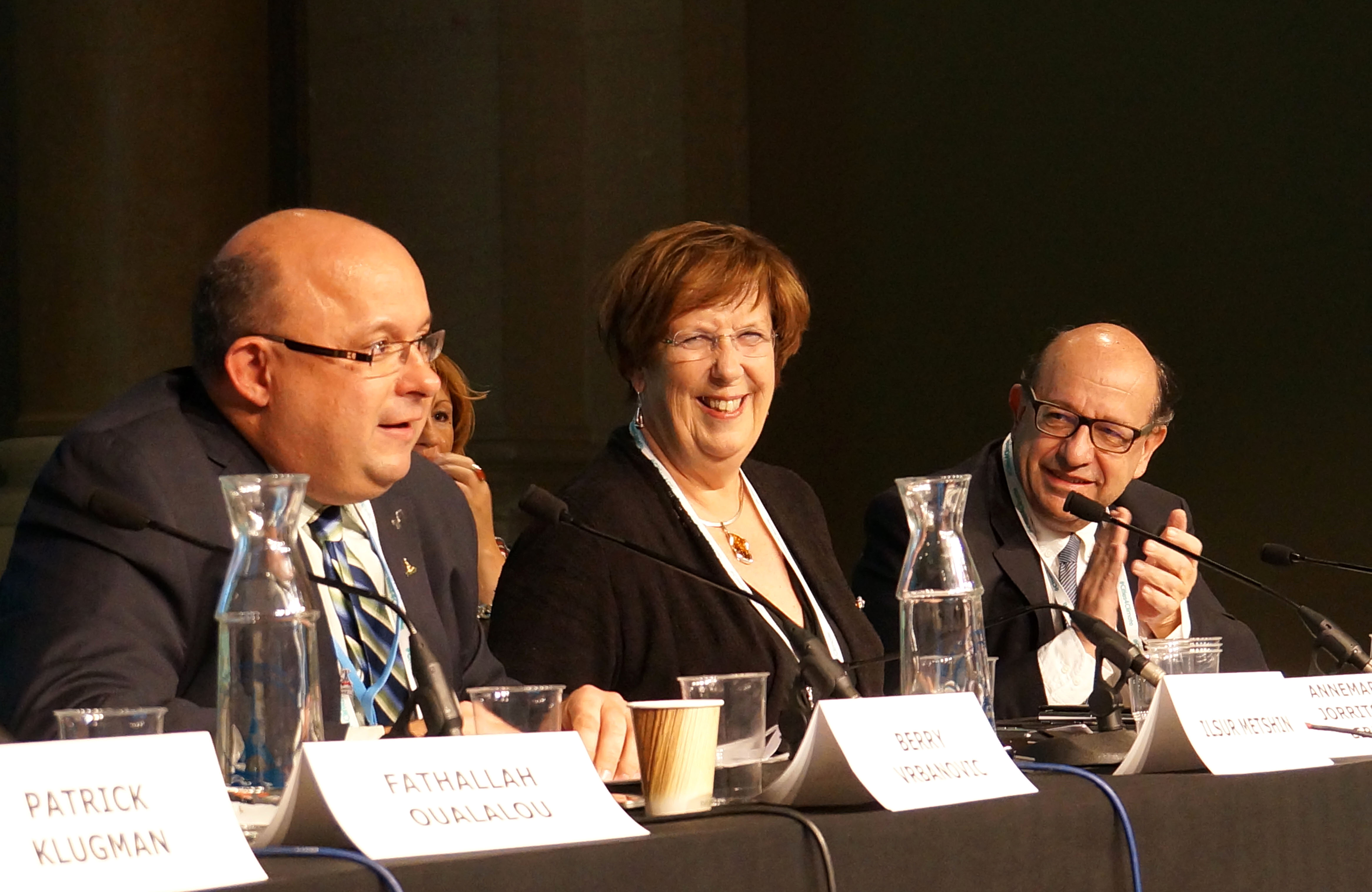 The second annual meeting of UCLG Executive Bureau, the body responsible for making proposals, carrying out the decisions of the World Council, and the administrative and financial management of UCLG, was chaired by the Mayor of Kazan and Co-President of UCLG, Ilsur Metshin along with Annemarie Jorritsma, President of CEMR and Berry Vrbanovic, Mayor of Kitchener and Deputy Treasurer of UCLG, who was nominated to take over as Treasurer until the Congress in Bogota in 2016, he replaces Fatallah Oualalou, former Mayor of Rabat, who is stepping down from office.
The second annual meeting of UCLG Executive Bureau, the body responsible for making proposals, carrying out the decisions of the World Council, and the administrative and financial management of UCLG, was chaired by the Mayor of Kazan and Co-President of UCLG, Ilsur Metshin along with Annemarie Jorritsma, President of CEMR and Berry Vrbanovic, Mayor of Kitchener and Deputy Treasurer of UCLG, who was nominated to take over as Treasurer until the Congress in Bogota in 2016, he replaces Fatallah Oualalou, former Mayor of Rabat, who is stepping down from office.
The Bureau said goodbye and thanked Fatallah Oualalou as well as Annemarie Jorritsma - who also steps down from her position as Mayor of Almere and President of the VNG - for their hard work over the years.
Mayor of Las Cabezas de San Juan, Francisco Toajas, opened the meeting by presenting the outcomes and recommendations of the 3rd World Forum of Local Economic Development in Turin, which highlighted the role of local and regional governments in local economic development.
Updates were given on UCLG’s global awards, which aim to highlight the achievements of local and regional governments in a range of fields. UCLG members were invited to apply for the first edition of the UCLG City of Bogotá Peace Prize, the 2nd edition of the "International Award UCLG - MEXICO City - Culture 21" and the 3rd edition of the Guangzhou International Award for Urban Innovation.
The Bureau also acknowledged ongoing preparations for the 5th UCLG Congress and the World Summit of Local and Regional Leaders: “Local Voices for a More Human Future”, which will be held in Bogotá in October 2016, just before the Habitat III Conference.
Mayor of Rosario, Monica Fein, recalled the adoption of the declaration: Mayors of Latin America Committed to Unity and Diversity, by Latin American networks of local leaders the day previously.
The Executive Bureau mandated the World Secretariat to continue facilitating the Global Taskforce of Local and Regional Governments and encouraged members to actively participate in the process and to share its advocacy messages with their national governments in the build up to Habitat III.
For more info
Related News:
- “From COP21 to Habitat III” and the UCLG Executive Bureau in Paris
- UCLG World Council and Climate Summit for Local Leaders contribute local voices to the COP21 in Paris
- The Paris City Hall Declaration: a decisive contribution to COP21
- Almost 400 cities join commitment to climate action through Compact of Mayors
- Lyon follow-up: World Summit on Climate and Territories calls for Paris Agreement to recognize local governments
- Trouvez l'accord et nous ferons le travail / Find the deal, we'll do the job
Social Share:
- Follow #UCLGMeets #Cities4Climate
- Check out our Storify
- Visit our album in Flickr
Find out more:
- Visit the UCLG at COP21 web page or;
- take a look the UCLG Programme of activities in Paris
- If you are from the press you can check out our press kit for the COP 21
- Check out our video for Cop 21
